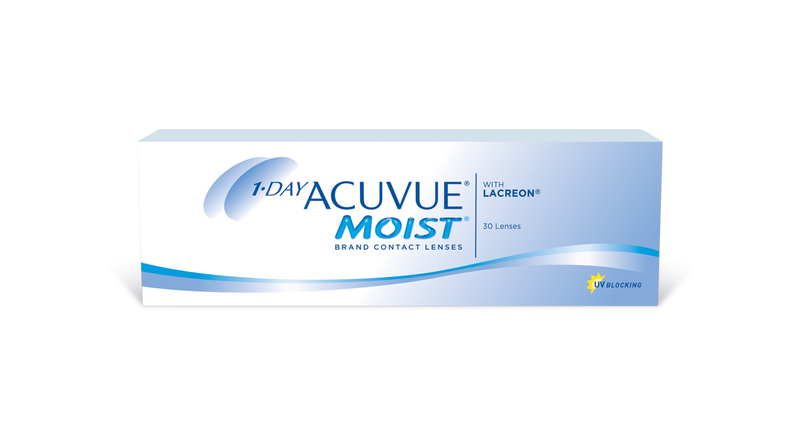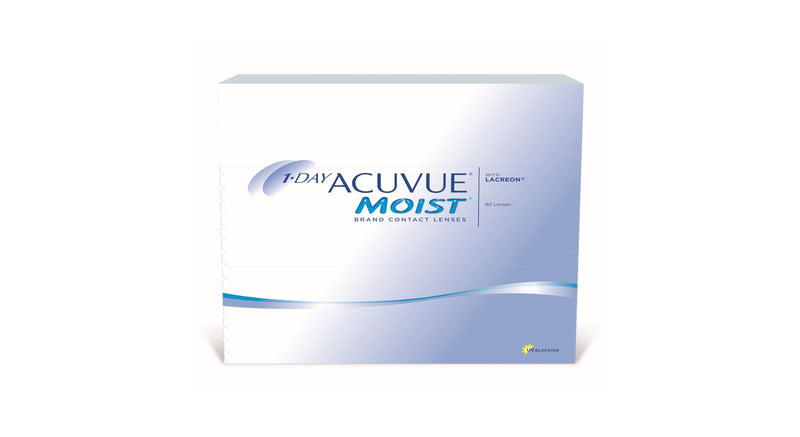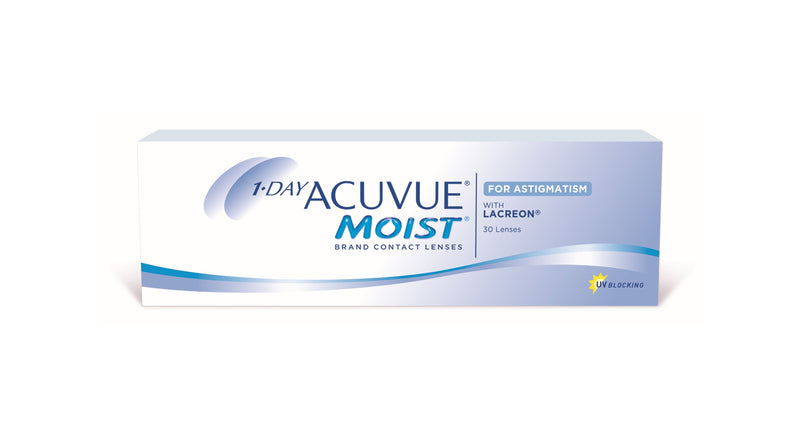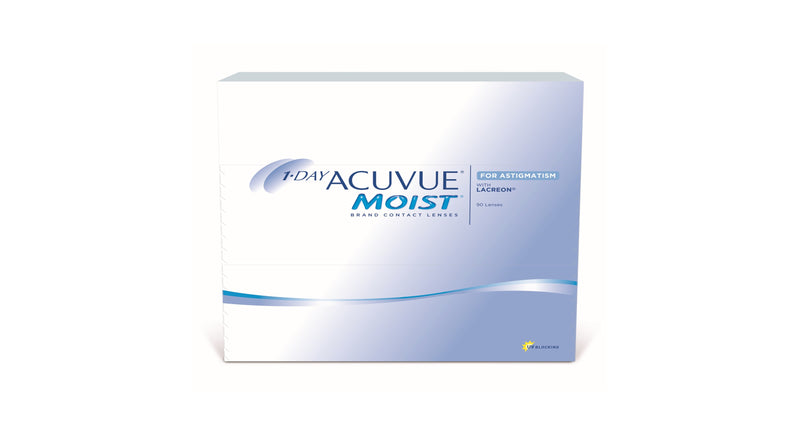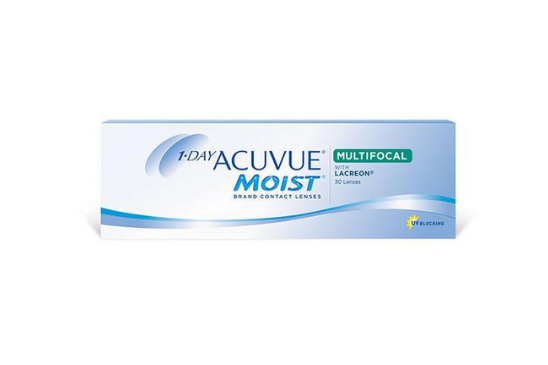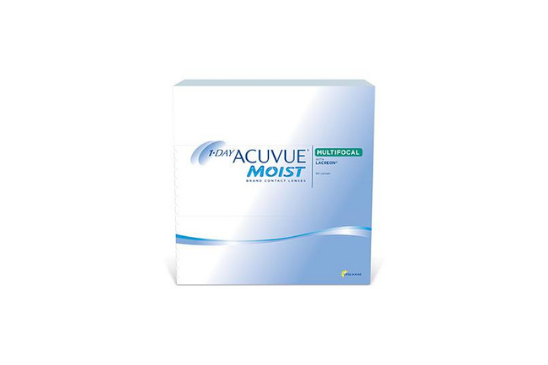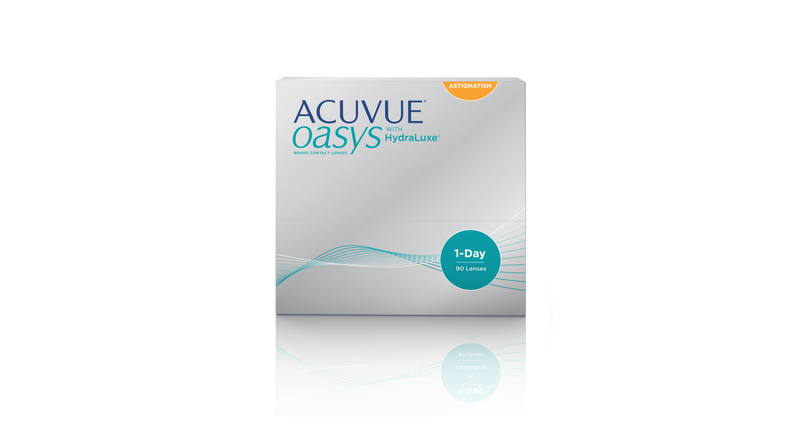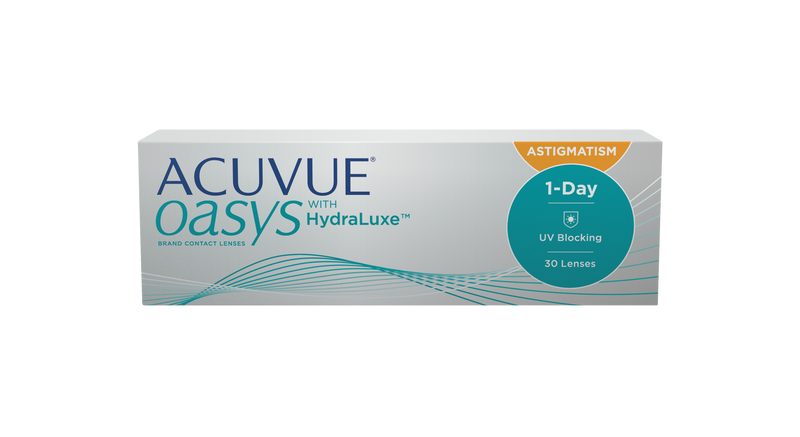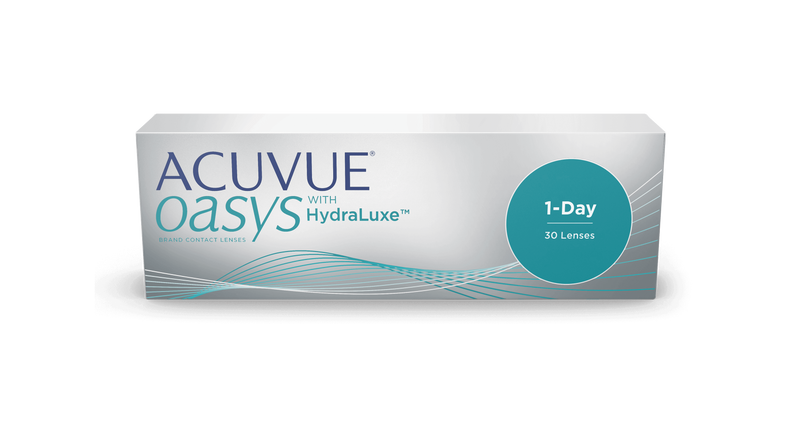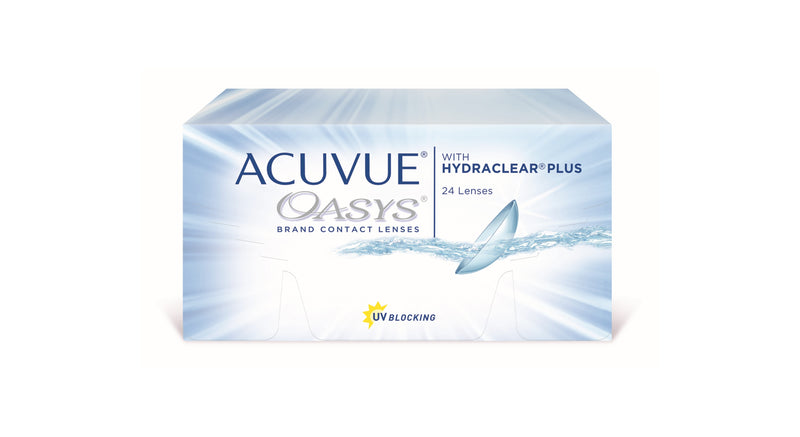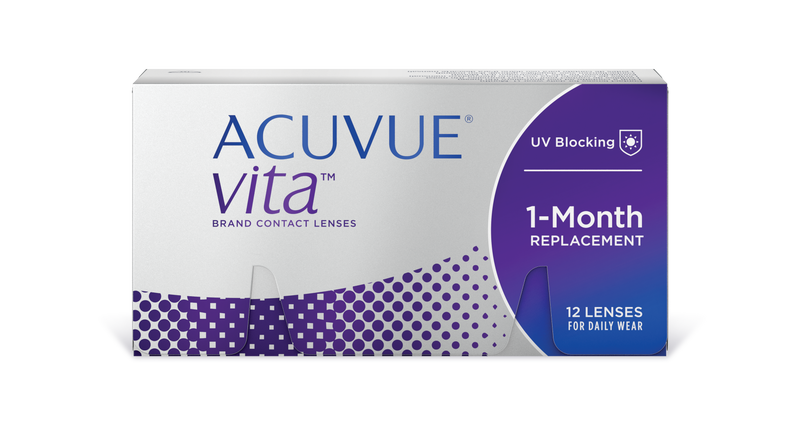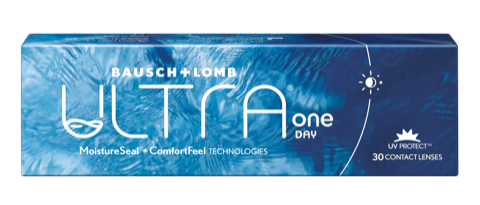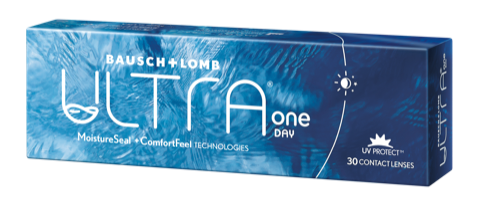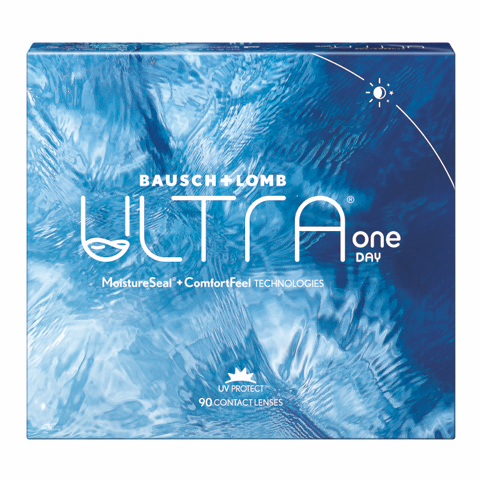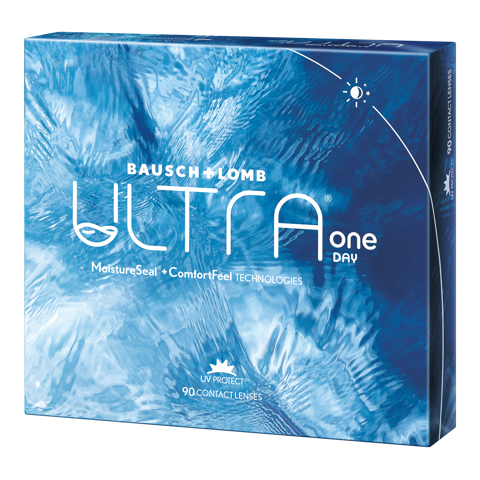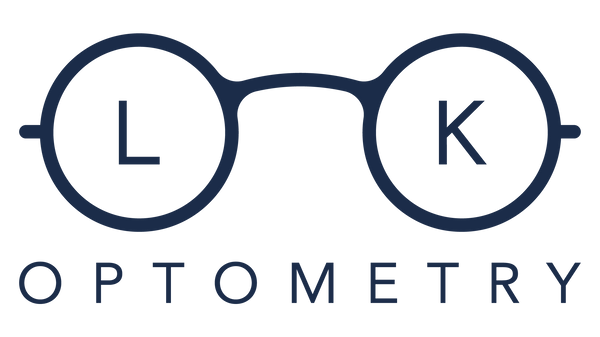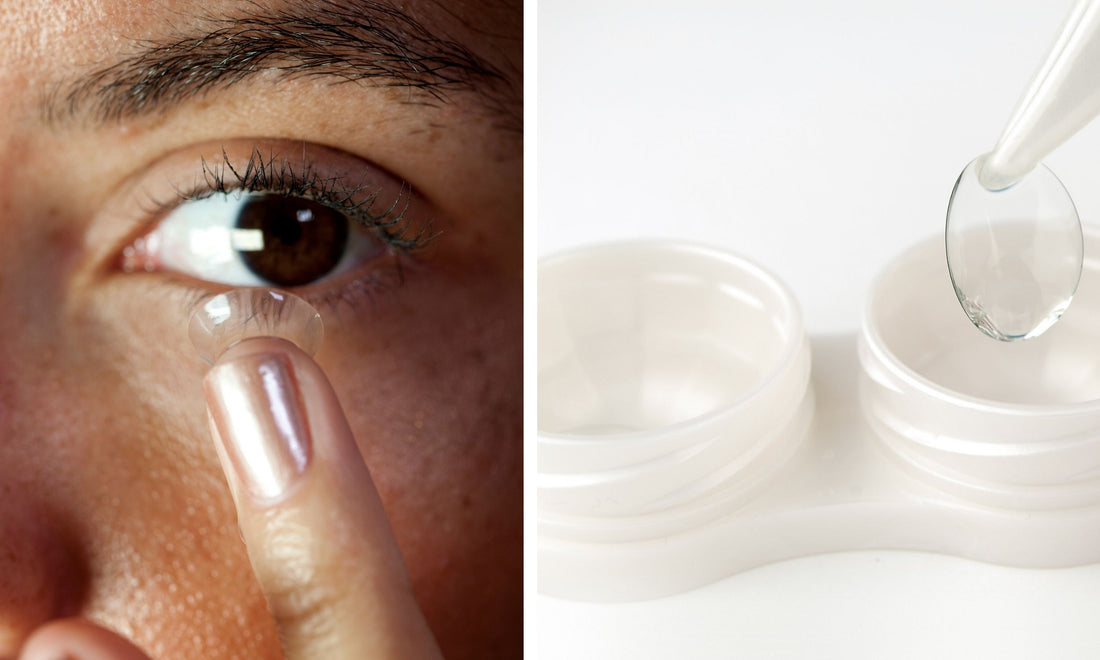
Types of Contact Lenses
Share
Used by millions of people around the world as a counterpart or substitute to eyeglasses, contact lenses are thin, curved, clear devices that you place on the surface of your eyes to improve or correct your vision. Contact lenses float on a film of tears covering your cornea to correct vision impairments that are a result of refractive errors. A refractive error is the most common type of vision problem and refers to the improper refraction or bending of light entering the eye, causing blurred vision or difficulty focusing.
There are 4 common types of refractive errors:
-
Nearsightedness (Myopia) - Myopia, commonly referred to as nearsightedness, is a refractive error that causes distant objects to look blurry or out of focus.
-
Farsightedness (Hyperopia) - Hyperopia, commonly referred to as farsightedness, is a refractive error that causes close objects to look blurry or out of focus.
- Astigmatism - Astigmatism is a refractive error that can make objects both near and far look blurry or distorted.
Related Product: 1-DAY ACUVUE® MOIST for ASTIGMATISM (30 Pack)
- Presbyopia - Presbyopia is a refractive error that commonly affects middle-aged or older people, causing difficulty when trying to focus on objects that are up close.
Related Product: ACUVUE® OASYS® for PRESBYOPIA Contact Lenses (6 Pack)
While all contact lenses serve the primary function of improving or correcting vision problems, there are many different types of contact lenses available for you to choose from. Whether they’re soft or hard contact lenses, or daily disposable or extended wear contact lenses, there are contact lenses to suit almost everyone’s needs, preferences, and lifestyles. You should always consult with your eye doctor when trying to figure out which contact lenses are right for you. Let’s go ahead and explore some of the different contact lens options available to you.

Soft Contact Lenses
Contact lenses are available in different materials. The most common, by far, are soft contact lenses which are made out of a special type of plastic containing water. This material, known as hydrogels, allows oxygen to pass through the lens to your cornea which decreases the chance of dry eyes and makes wearing them more comfortable. A more advanced version of this is the silicone hydrogel contact lens which allows even more oxygen through the lens, further minimizing eye dryness and irritation. Silicone hydrogel contact lenses are the most popular type of soft contact lens, but it isn’t for everyone.
Soft contact lenses also come in a variety of options in regards to their material, their curvature, and the frequency at which you need to replace them. Whether you choose to go with daily wear or extended wear soft contact lenses will depend on your lifestyle. The majority of soft contact lenses are disposable, potentially making them a more convenient option for some. Most people also find it easier to adjust and become accustomed to wearing soft contact lenses as opposed to hard contact lenses. Be sure to consult with your eye health care professional when deciding which one is the right fit for you.

Here are some of the different types of soft contact lenses available as well as things to consider when choosing between them.
Daily Wear Contact Lenses
With daily wear contact lenses, you wear them during the day while you are awake and then remove them at night before you go to sleep. There are varying replacement schedules for different types of daily wear contact lenses, but they all need to be removed at night to either be disposed of or cleaned and disinfected using a contact lens solution.

- Daily Disposable - As the name suggests, these daily wear soft contact lenses are to only be worn during the day and then disposed of each night. Because you are replacing them every day, there is a smaller chance of a buildup of protein deposits making it one of the healthier contact lens options. You also don’t need to worry about cleaning or disinfecting them nightly. Daily disposable contact lenses are a good option for people who plan on wearing contact lenses infrequently, perhaps only while engaging in sports or physical activities, attending certain functions, etc.
Related Products: Alcon PRECISION1® Contact Lenses (30 Pack)
1-DAY ACUVUE® MOIST Contact Lenses (30 Pack)
- Bi-weekly Replacements - While these contact lenses still need to be removed nightly to be disinfected, you can keep reusing them until it’s time to replace them every 2 weeks. Some may find this to be a more cost-effective replacement schedule.
Related Product: ACUVUE® 2 2-Week Contact Lenses (6 Pack)
- Monthly Replacements - These contact lenses can be worn for 30 days, making the replacement schedule potentially easier to remember than the bi-weekly option as you just need to change them out once a month. These will typically still need to be removed nightly to be disinfected.
Related Product: ACUVUE® VITA® Monthly Contact Lenses (6 Pack)
Extended Wear Contact Lenses
Extended wear contact lenses can be worn for longer periods of time before having to remove or replace them and can even be worn overnight while you sleep. While some extended wear contact lenses can be worn for up to a month, they still need to be cleaned and disinfected regularly every week (or more frequently as needed) to minimize the buildup of debris and reduce the risk of eye infections or other problems.

Hard Contact Lenses
Hard contact lenses, or rigid gas permeable (RGP) lenses, are less commonly used, but can be the right fit for some people. As you might have guessed, rigid gas permeable lenses are stiffer and more durable than soft contact lenses. This type of contact lens is designed to be breathable and allows a lot of oxygen through to your cornea, making it a potential alternative to soft contact lenses if you suffer from dry eyes. Rigid gas permeable lenses may provide the wearer with a crisper, clearer vision and can often be effective in correcting astigmatism.
That being said, getting used to wearing rigid gas permeable lenses usually takes longer than it does with soft contact lenses. These contact lenses need to be specifically measured and precisely fitted to the individual wearer. Rigid gas permeable lenses cannot be worn when playing sports and still need to be disinfected nightly, but typically do not need to be replaced for 2 years or more.
Other Contact Lens Options
There are a handful of other options available for contact lenses. In addition to contact lenses for myopia (nearsightedness) and hyperopia (farsightedness), there are special contact lenses for dry eyes as well. In most cases, contact lenses can be fitted to incorporate multiple options. Let’s take a look at just some of the other different types of contact lenses out there.
Toric Contact Lenses
If you’re looking for contact lenses for astigmatism, but don’t like the idea of using rigid gas permeable lenses, toric lenses might be a better option for you. Designed and specifically shaped to correct astigmatism, toric contact lenses are available as both daily wear or extended wear lenses.
Coloured Contact Lenses
If you want to express yourself or stand out from the crowd, you have the option of getting coloured contact lenses. Also referred to as tinted contact lenses, they can help to add a little bit of flair to your eyes. Whether you’re looking for coloured prescription contact lenses or something strictly for cosmetic purposes, you’re still placing a device on your eye and should always speak with your eye doctor beforehand. This option is available for most types of contact lenses and if needed you can even purchase coloured contact lenses for astigmatism.

Related Product: 1-DAY ACUVUE® DEFINE® Contact Lenses (30 Pack)
Multifocal or Monovision Contact Lenses
Your eyes may require different or multiple vision corrections at the same time, which is what multifocal and monovision contact lenses were created to help with. This type of contact lens has multiple prescriptions in each lens, allowing for simultaneous myopia (nearsightedness), hyperopia (farsightedness), and presbyopia correction.
Related Products: 1-DAY ACUVUE® MOIST MULTIFOCAL Contact Lenses (30 Pack)
1-DAY ACUVUE® MOIST MULTIFOCAL Contact Lenses (90 Pack)
On the other hand, monovision contact lenses have different prescriptions in each lens to combat blurred vision in objects both near and far. The contact lens in your dominant eye will be used to focus on distant objects, while the contact lens in your weaker eye will be used to focus on nearby objects. Monovision contact lenses can sometimes lead to a loss of depth perception.
Hybrid Contact Lenses
Designed with a rigid gas permeable center surrounded by a softer outer ring, hybrid contact lenses are a combination of hard and soft contact lens materials. These hybrid contact lenses can also correct myopia, hyperopia, presbyopia, and astigmatism and some find it to be more comfortable than normal rigid gas permeable contacts.
Contact Lenses for Kids
There are contact lens options available for children that are designed to slow down the progression of nearsightedness.

Buying Contact Lenses
Now that we’ve discussed the many different types of contact lenses out there, you may want to purchase some for yourself. Before you can buy contact lenses, however, you’ll need a valid contact lens prescription. Having a prescription for eyeglasses is not the same thing. You will need to complete a specific eye exam for contact lenses in order to receive a contact lens prescription. Once you have a valid contact lens prescription, finding a retailer of contact lenses near you shouldn’t be difficult. Most optometry clinics sell contact lenses or can direct you to a retailer that does.
You also have the option of buying contact lenses online from the comfort of your own home if you have a valid contact lens prescription. There are many contact lens companies and retailers that sell their products online. If you’re looking to purchase contact lenses online, be sure you do your research to find a reputable company or brand. It can also be helpful to read online reviews of different types of contact lenses before you commit to purchasing a specific kind. As mentioned earlier, it’s always best to speak with your eye doctor before purchasing contact lenses, especially if for the first time.

If you’re looking to buy contact lenses in Canada, feel free to take a look at our online shop. You may have noticed that we included links throughout this post to specific contact lenses that we carry, but we actually have much more available! We have a great selection of contact lenses that are designed to correct astigmatism and presbyopia. If you’re looking for enhancement tinted contact lenses, we have those too. The majority of the contact lenses we supply are equipped with UV blocking technology and some are even designed to provide additional comfort by keeping your eyes hydrated. Most of these contact lenses are available in daily, bi-weekly, or monthly disposable options as well. Depending on your needs and how many contact lenses you want to purchase at a time, the prices for contact lenses in our shop can range from $30.00 to $189.99.
Booking a Contact Lens Exam
With so many types of contact lenses available, it can be difficult to determine which contact lenses are right for you. If you’re in the Vancouver area, book a contact lens eye exam with us at Look Optometry and we’ll get you fitted with the contact lens that best suits your vision needs and lifestyle. We offer the latest in contact lens technology and have a specialized eye exam to help select the correct contact lens and fit for you. Prior to your contact lens exam, we’ll ask you some questions to get a better understanding of your expectations, your lifestyle, and any hobbies or athletic endeavours you may have. This information, combined with your exam results, will give us a good indication of which contact lenses you should consider. Reach out to us and we’ll gladly set you up with properly fitted contact lenses that are comfortable, provide clear vision, and are safe for your eyes.
